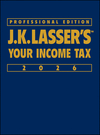What Does “Sunsetting” Mean to You?
The Economic Growth and Tax Relief Reconciliation Act of 2001 (EGTRRA) created numerous tax breaks that are scheduled to expire at the end of this year. Expiration, or “sunsetting,” means that the tax rules in place prior to EGTRRA will again be effective unless Congress makes changes to extend current rules. What are some of the favorable rules that could disappear after 2010 and what can you do about them?
Expiring Rules
Not all of the tax cuts and breaks created by EGTRRA will sunset at the end of 2010. Congress has already made permanent some breaks, such as IRA contribution limits and 529 education savings accounts, and extended through 2011 the increased adoption credit.
Provisions set to sunset include:
- Tax bracket changes. The 10% bracket will disappear and the top two brackets will rise to 36% and 39.6%.
- Limits on itemized deductions and personal exemptions. These had been repealed fully in 2010, but will reappear in 2011 for higher-income taxpayers.
- Marriage penalty relief. Joint filers received relief in the form of a standard deduction amount double that of singles, increased 10% and 15% tax brackets, and increased phaseouts for the earned income credit and certain other tax brackets.
- Child tax credit. The current $1,000 per child credit reverts to $500 per child.
- Dividends. The capital gains rates that currently apply to qualifying dividends will cease at the end of 2010; thereafter, dividends will be subject to ordinary income tax rates.
- Capital gains. The top rate will rise from 15% to the old 20% rate.
Strategies to Take Advantage of Current Opportunities
In view of the prospect of expiring tax breaks, what can you do now to take advantage of current savings opportunities? Here are some ideas:
- Make charitable contributions in 2010. When the limit on itemized deductions is reinstated after the sunset, charitable contributions will be subject to an additional limitation that does not apply in 2010. For those who are below the phaseout, however, waiting until 2011 may produce greater savings for those who fall into a higher tax bracket than in 2010.
- Review investments. Now may be a great time to reap capital gains. If you like a particular investment position that has been profitable for you, you can sell and then reacquire the same position immediately (pocketing your gains). The wash sale rule, which bars reacquisition of a security within 30 days before or after a sale applies only to loss sales. Also consider dividend-paying stocks and mutual fund holdings to decide whether they should be retained. Growth stocks, rather than dividend-producing stocks, may be more attractive under post-sunset rules.
Prospects for Extensions
Technically, tax rules listed above and dozens of others are scheduled to sunset at the end of 2010. However, Congress is unlikely to let them all fall by the wayside. Some likely extensions could include:
- Favorable tax rates for those with adjusted gross income under $200,000 ($250,000 for joint filers). The top two brackets would be raised only for those with income over these figures. The 20% capital gains rate would also apply only to those with income above these amounts.
- Child tax credit of $1,000 could be extended since it is restricted to taxpayers with income below set amounts.
- Standard deduction marriage penalty relief for joint filers.
Installment sale
A sale of property that allows for tax deferment if at least one payment is received after the end of the tax year in which the sale occurs. The installment method does not apply to year-end sales of publicly traded securities. Dealers may not use the installment method. Investors with very large installment balances could face a special tax.



